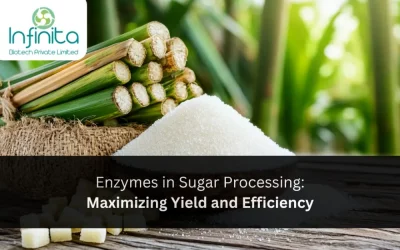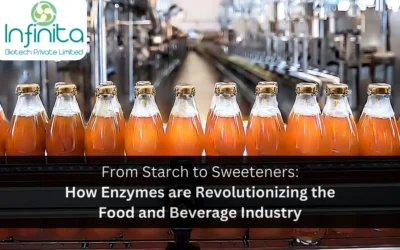Enzymes are complex proteins that play a vital role in many biological processes, including digestion. They are essential for breaking down food into smaller molecules that the body can easily absorb and use for energy and growth. In this article, we will delve into the importance of enzymes in digestion, exploring why and how they are essential for optimal gut health and overall wellness.
What Are Enzymes?
Enzymes are specialized proteins that act as catalysts to speed up chemical reactions. They are involved in a wide range of biological processes, including digestion, metabolism, and cellular respiration. There are three main types of enzymes: metabolic enzymes, digestive enzymes, and food-based enzymes.
Metabolic enzymes are involved in the body’s internal processes, such as breaking down carbohydrates, fats, and proteins. Digestive enzymes, on the other hand, are secreted by the digestive system to break down food into smaller molecules that can be absorbed by the body. Finally, food-based enzymes are naturally occurring enzymes found in raw and unprocessed foods.
Enzymes work by binding to specific substrates and breaking them down into smaller, more easily absorbed molecules. This process is called catalysis and is essential for the efficient functioning of the digestive system.
The Role Of Enzymes In Digestion
Enzymes play a crucial role in the digestive process, breaking down food into smaller molecules that the body can absorb and use for energy and growth. The digestive system secretes several different enzymes, each with a specific function. For example, amylase breaks down carbohydrates, lipase breaks down fats, and protease breaks down proteins.
The digestive process begins in the mouth, where food is mixed with saliva, which contains the enzyme amylase. This starts the process of breaking down carbohydrates into smaller molecules. As food moves through the digestive system, it is further broken down by other enzymes, including lipase and protease, until it reaches the small intestine. Here, the majority of nutrient absorption takes place.
The Benefits Of Enzymes In Digestion
The benefits of having adequate levels of digestive enzymes are numerous. Firstly, they help to improve nutrient absorption, allowing the body to better utilize the nutrients from the food we eat. This can lead to better overall health and wellness, as well as improved energy levels.
In addition, having healthy levels of digestive enzymes can help to support gut health. This is because digestive enzymes help to break down food, reducing the amount of undigested material in the gut. This can reduce the risk of digestive symptoms, such as bloating, gas, and constipation.
Another benefit of digestive enzymes is that they can help to alleviate symptoms of digestive disorders. For example, people with digestive issues such as irritable bowel syndrome (IBS) or acid reflux may find relief from using digestive enzyme supplements.
Enzymes In The Human Body
The human body produces enzymes in several different areas, including the salivary glands, pancreas, and small intestine. The digestive system is made up of several different organs, including the mouth, esophagus, stomach, small intestine, and large intestine. Each of these organs plays a crucial role in the digestive process, secreting different enzymes to help break down food.
Several factors can affect enzyme production in the body, including age, diet, and stress levels. For example, as we age, our body’s ability to produce digestive enzymes decreases, which can lead to digestive issues. Similarly, a diet high in processed foods and low in raw and unprocessed foods can also reduce the levels of digestive enzymes in the body.
Common Enzymes Used In Digestive Supplements
There are several common enzymes used in digestive supplements, including papain, amylase, lipase, and protease. Papain is derived from papaya and is commonly used to help break down proteins. Amylase is used to break down carbohydrates, while lipase helps to break down fats. Protease is used to break down proteins.
The Importance Of Choosing Quality Enzyme Supplements
When choosing a digestive enzyme supplement, it is important to consider several factors, including the quality of the product, the type and amount of enzymes it contains, and any potential side effects. It is important to choose a high-quality product from a reputable source to ensure that the enzymes are effective and safe to use.
Additionally, it is important to consider any potential side effects, such as allergies or interactions with medications. It is always best to speak with a healthcare professional before starting any new supplement regimen.
Foods Rich In Enzymes
Several foods are naturally rich in enzymes, including fruits and vegetables, sprouts, fermented foods, and raw foods. Fruits and vegetables, for example, are rich in digestive enzymes and can help to support gut health. Similarly, sprouts are an excellent source of enzymes, and fermented foods, such as kimchi and kefir, are rich in probiotics and digestive enzymes.
Maintaining A Healthy Digestive System
In addition to eating a diet rich in digestive enzymes, there are several other ways to support digestive health. This includes eating a balanced diet, staying hydrated, and engaging in regular physical activity. Additionally, reducing stress levels and avoiding processed foods can also help to support digestive health.
Understanding Digestive Disorders And Enzymes
Digestive disorders are a common issue, affecting millions of people worldwide. Some common digestive disorders include irritable bowel syndrome (IBS), acid reflux, and Crohn’s disease. These disorders can cause a variety of symptoms, such as abdominal pain, bloating, gas, and constipation.
Enzymes can play a role in alleviating symptoms of digestive disorders. For example, digestive enzyme supplements can help to break down food, reducing the amount of undigested material in the gut and reducing symptoms of bloating and gas. Additionally, enzymes can help to improve nutrient absorption, which can be particularly beneficial for those with digestive disorders.
It is important to note, however, that while digestive enzyme supplements can help alleviate symptoms, they are not a cure for digestive disorders. It is always best to work with a healthcare professional to determine the best course of treatment for your specific needs.
Conclusion
In conclusion, enzymes play a crucial role in the digestive process, breaking down food into smaller molecules that the body can absorb and use for energy and growth. Adequate levels of digestive enzymes can provide numerous benefits, including improved nutrient absorption, better gut health, reduced digestive symptoms, and enhanced overall health and wellness.
In addition to eating a diet rich in digestive enzymes, it is also possible to support digestive health through the use of digestive enzyme supplements. However, it is important to choose a high-quality product from a reputable source and to always consult with a healthcare professional before starting any new supplement regimen.

 Summarize this Article with AI
Summarize this Article with AI






